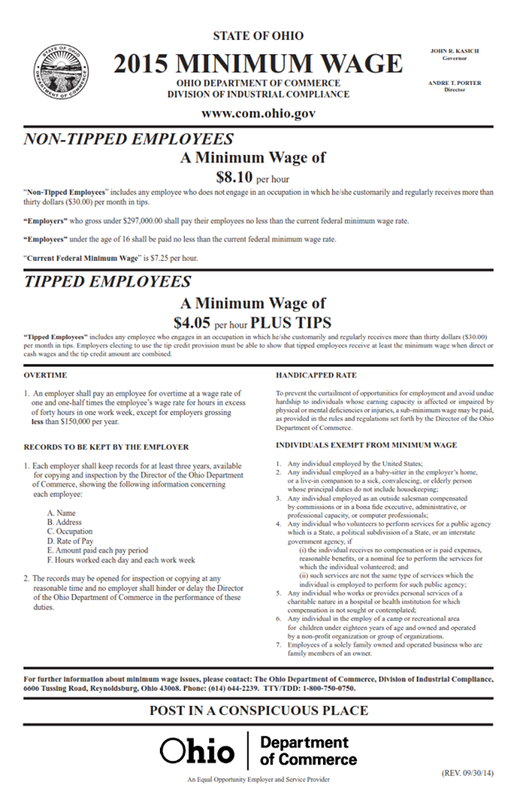|
From time to time when I meet wonderful people in my life, I find myself telling them I’d hire them if I owned a business. To me this is a great compliment because owning a business is very personal, so inviting someone into that company is saying a lot about how you feel about them. Kind of like when I meet terrible people, I tell them I’d fire them out of a cannon into the sun. Hiring the right people for a business is obviously so important. But it is equally important to take steps to protect your business should the relationship with an employee turn into something reminiscent of an episode of Judge Judy or even Maury Povich. The following are some points to consider that will protect you when adding employees to your small business.
First, it is important to determine who is an employee and who is an independent contractor based on the IRS guidelines (See IRS form SS-8). There are a lot of differences between an employee and independent contractor (beyond who gets to attend the company Christmas party). Figure out which relationship works best for your company by differentiating the two roles. Second, draft an Employee Handbook to establish policies to minimize risk of wrongful termination and discrimination claims. For example, dress codes are a great way to ensure you are sending a clear message that yoga pants are not appropriate for anyone with facial hair. The third way to protect your company is to post the required employee disclosures at the office. Anything from health and safety postings to minimum wage postings can be required. It is important to figure out what is required of your business so employees know their rights if they wish to report a health or safety issue. For example, as a NICU nurse I learned from my lawyer, Elliott Stapleton, that dirty diapers are not considered a safety violation. Agree to disagree. A business must protect its assets, which include its people and trade secrets. This is why it is important to create documents such as non-compete and non-solicitation agreements for key employees to make sure other companies don’t steal all of your talent and ideas. I’m sure this is why no one from McDonald’s has left the company to join up with a former Pizza Hut employee in order to create a Big Mac Pizza store, which I think would be delicious. Hiring the right employees is paramount to running a business. But the aforementioned points are almost as important to keeping your business safe and intact. There is enough to worry about when running a business. Having a lawyer like Elliott Stapleton on your team makes this process so easy you can spend your valuable time deciding who to hire and who to fire (out of a cannon into the sun.)
0 Comments
_ An individual, start-up business, or established company may have an idea or concept that is unique but not otherwise protectable by a patent. This can include a business model, formulas, recipes, processes, product concepts, marketing plans, unique sources for supplies, assembly processes, or customer lists (collectively referred to as “trade secrets”).
The protection of your trade secrets is essential to maintaining a competitive advantage. How can a start-up business protect its Trade Secrets? As the name suggests, the subject of a trade secret must remain secret and there must be adequate measures to protect the secrecy. That means it must not be public knowledge or of general knowledge in the trade or industry. If the secret is disclosed through authorized means or there are not adequate measures to guard the secrecy competitors can take advantage of the trade secret. But if there is an unauthorized disclosure and use of a trade secret, there are strict criminal and civil penalties. (Note: If you are an employee, it is important not to disclose a trade secret, here is a summary of the criminal risk) What are adequate measures for protecting a Trade Secret? While there are no fixed rules as to what are “adequate” measures, there are best practices that must always be followed: 1. Never disclose confidential information, to anyone who has not signed a nondisclosure agreement or without a confidential relationship. 2. Have password protection on all software that contains Trade secrets and limit an employee or contractor’s ability to place the trade secrets on a personal computer. 3. Maintain a policy that all business records must be returned after separation with an employee or contractor. 4. Never disclose any aspect of the trade secret publicly. The best practice to ensure your trade secrets are protected is to conduct an annual audit. Through this process, you can identify your trade secrets, determine the steps that can be taken to protect their secrecy, update your company passwords, and test your security measures. _ At some point, every employer will have to terminate an employee. To avoid claims that the termination was based on discrimination or was without just cause there is a clear procedure that should be followed to avoid future, unnecessary costs and attorney’s fees.
How do you limit potential discrimination claims? You can discharge an employee at any time for any reason, except for prohibited reasons. Generally, those prohibited reasons are: Religion, Gender (including pregnancy), Age, Race, Political beliefs, National origin, Disability, Retaliation for an otherwise legal act such as: asserting overtime rights, reporting that the employer is breaking the law (“Whistle Blowing”), or making a worker’s compensation claim There is no way to see inside of an employer’s mind to determine why he or she fired an employee, the evaluation is by actions and the result of those actions. To ensure your true reasons for firing an employee are clear, it is important to document all reprimands and maintain an Employee Handbook. We have all seen posters with disclaimers on the wall of an office before. The purpose of these posters is to provide notice to employees about certain rights provided by state or federal law.
The issue of interest for small business owners is: what posters are required by state and federal law? The Department of Labor has created a website for this very purpose: Department of Labor. You can answer a series of questions and the site will now generate the list of posters for you with links to download each poster. While you are conducting this assessment it would be best to also review your current employee review procedures and employee handbook to ensure everything is up-to-date (and to make sure there are procedures and a handbook). Why is this important?
When a person has a medical need, there are symptoms which physically manifest as a warning. There are also preventative check-ups which are used to limit future risks. When businesses have a legal need, it can be hard to recognize the symptoms or circumstances where preemptive action is necessary. When a legal problem does present itself, the cure is always more costly and time consuming than prevention. How does a business owner know what legal questions he or she should be asking? Business owners focus their work on maintaining a profitable and sustainable company. In this pursuit, legal well-being plays a vital role but can be overwhelming when the issues are unknown. To address this universal business problem, I have created a concise (one page) Legal Check-up. This Check-up is written specifically for small business owners to do a self-exam. The Check-up will provide insight into the company's current legal well-being and a road-map for action on future legal needs. Work created by an employee, within the scope of their position, is presumptively the property of the employer. This is called a “Work for Hire” creation. It is best to have the scope of employment clearly defined so there is no confusion on this point.
The same is not true for Independent Contractors, Freelancers, or Consultants. For these outside contractors you will need a Work for Hire Agreement to ensure you own all rights to the work created. A Work for Hire Agreement only applies to contribution to a collective work, as a part of a motion picture or other audiovisual work, as a translation, as a supplementary work, as a compilation, as an instructional text, as a test, as answer material for a test, or as an atlas. For more information: http://www.copyright.gov/circs/circ09.pdf. No. There is a common misconception that anyone can be made into an independent contract. That is not true. Further, there can be serious repercussions if you mislabel someone an independent contractor who is not one. Whether a person can be an independent contractor v. an employee generally relates to the degree of control the owner has
Before making the decision to hire or contract for the first time it is best to work with qualified counsel. There needs to be a clear agreement between the company and the contractor and assessment to determine if the person can even be a contractor. If you have an independent contractor now and want to see if you are in trouble or in compliance you can do an evaluation using IRS form SS-8. Here is a link: http://www.irs.gov/pub/irs-pdf/fss8.pdf |
Elliott Stapleton Attorney with CMRS Law
|



 RSS Feed
RSS Feed